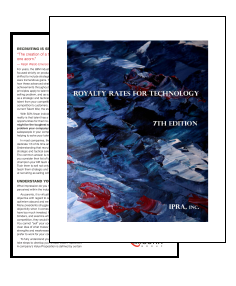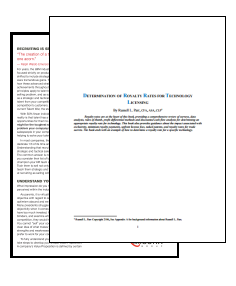IP is the Foundation of Value Around the World
The United States Patent and Trademark Office conducted a study to estimate the impact of intellectual property on the economy. It identified IP-intensive companies as those using significant amounts of patents, trademarks and copyrights. The report concluded that IP-intensive industries supported 45.5 million jobs and contributed $6.6 trillion in value added in 2014, equivalent to 38.2 percent of U.S. GDP. The study also reported on the impact of IP in Europe.[1]
The European Patent Office and the Office for Harmonization in the Internal Market (OHIM) published a comparable report in 2013 using European Union (EU) data. It relied on similar methodologies to identify intellectual proper¬ty rights (IPR) intensive industries in Europe and quantified their contribution to the European economy in the 2008–2010 period. The study found that IPR-intensive industries generated €4.7 trillion worth of economic activity, which amounted to almost 39% of EU GDP. Furthermore, the study found that IPR-intensive industries directly employed 56.5 million Europeans, which ac¬counted for almost 26% of all jobs for the period.[2] According to another report, IP-intensive industries account for approximately 90% of the EU’s trade with the rest of the world.[3]
Intellectual properties are at the very core of corporate success. Properties such as patented technology and world-class trademarks are the basis for capturing huge market share, commanding premium prices, and maintaining customer loyalty. They are also in scarce supply. This combination of power and scarcity makes such assets very valuable. Companies that possess such assets will grow and prosper. Those without access to intellectual property will stagnate for a while in low-profit commodity businesses and eventually fade out of existence. Future success therefore requires that companies somehow gain access to intellectual properties. They must create them, buy them, share them or arrange to rent them. As a result, licensing and strategic alliances will play a dominant role in future corporate deal making. At the core of these strategies will be intellectual property.
Companies are seeking to expand product lines, increase market share, minimize new product development costs, expand market opportunities internationally, and reduce business risks. Companies are also seeking to create corporate value for investors. All of this is accomplished by exploiting patents, trademarks, trade secrets, and copyrights.
For more on this topic see: Intellectual Property: Valuation, Infringement, and Infringement Damages, 5th Edition
[1] Intellectual Property and the US Economy, 2016 Update, USPTO [2] Ibid [3] http://www.eubusiness.com/focus/16-10-25


